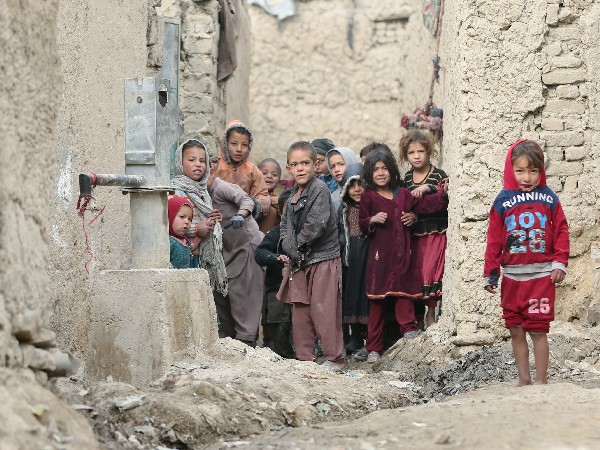
Internally displaced Afghan children looking on next to their shelters on the outskirts of Kabul, Afghanistan February 3, 2021. REUTERS/Omar Sobhani - RC26LL9HMZ56
Kabul [Afghanistan], July 28 (ANI): Since the Taliban took control of Afghanistan and significant contraction of the country’s economy coupled with rising poverty, and financial instability, an organisation Save the Children in a report highlighted that 24.4 million people in Afghanistan, including 13 million children are in immediate need of humanitarian assistance.
According to a study from the Save the Children organization released on Wednesday, 18.9 million people, including 9.2 million children in Afghanistan, may experience an emergency or critical food insecurity between June and November 2022, Khaama Press reported.
Citing the United Nations Development Program, the report stated that 97 per cent of the Afghan population is living in extreme poverty and falling below the poverty line with every passing day. Over 1.1 million Afghan children under the age of five have been subjected to acute malnutrition whereas Covid-19, measles, acute watery diarrhoea (AWD), and dengue fever are among the numerous disease emergencies Afghanistan is currently dealing with, reported Khaama Press citing the report.
Additionally, the Ukraine crisis has had a massive impact on the rise in food costs and how it became out of reach for many Afghans. Afghanistan is currently grappling with a serious humanitarian crisis as according to international assessments, the country now has the highest number of people in emergency food insecurity in the world, with more than 23 million in need of assistance, and approximately 95 per cent of the population having insufficient food consumption.
Moreover, the situation of human rights in Afghanistan has worsened since the collapse of the Afghan government and the Taliban’s return to power in August last year. Although the fighting in the country has ended, serious human rights violations continue unabated, especially against women and minorities. As a result of this, women and girls in Afghanistan are facing a human rights crisis, deprived of the fundamental rights to non-discrimination, education, work, public participation, and health.
Besides this, the continuously soaring prices of food products in the country have emerged as a new challenge for Afghans. In a short span of fewer than three months, food prices have almost doubled putting numerous Afghans on the brink of starvation. (ANI)














